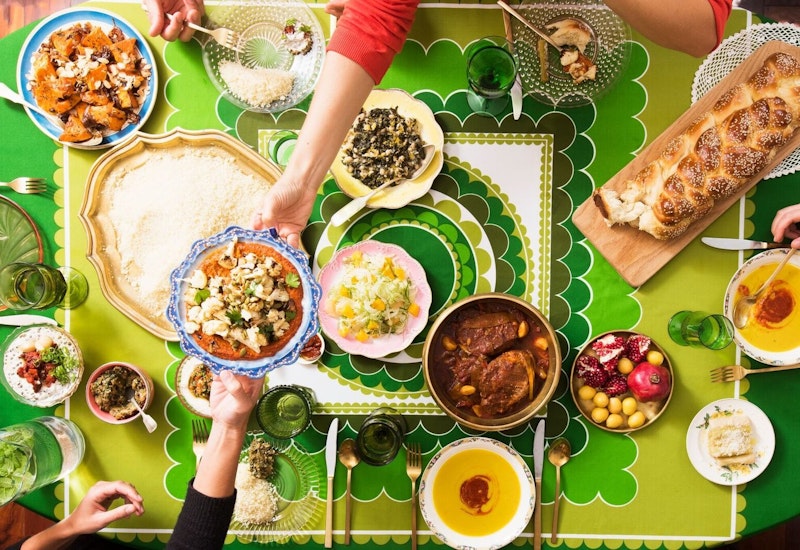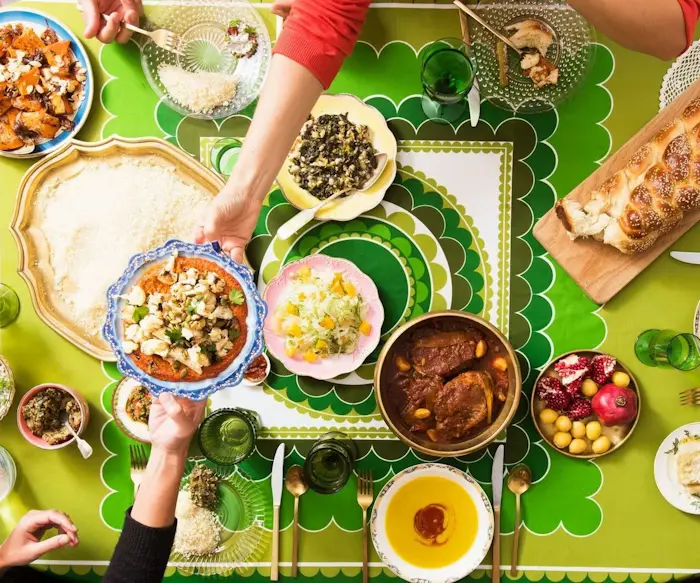While so many Jewish holidays carry with them specific dishes or foods, Sukkot’s culinary traditions are typically more focused on where a meal is eaten (in a sukkah or hut) than what dishes are on the table. Still, families and communities have developed their own customs.
For Ron Arazi, who grew up in Israel as the son of a Moroccan mother and Lebanese father, Sukkot was always defined by a simple fava bean soup prepared by his mother’s mother in her home in Be’er Sheva. It “was the only thing my grandparents made every year,” Ron recalls. Their sukkah “was a sort of open house. Friends, family and neighbors stopped by for this special soup with harissa.”
The soup, which is blended with garlic and lemon, is so thick that it’s eaten in his family with pita, instead of a spoon. Ron’s grandmother would make the dough for the pita and his grandfather would roll it out and bake it throughout the day so it was always fresh.
Ron still makes the recipe today. It fits with his broader mission to celebrate Sephardic and Middle Eastern Jewish cuisines through an artisanal food company called NY Shuk that he and his wife Leetal own in New York.

